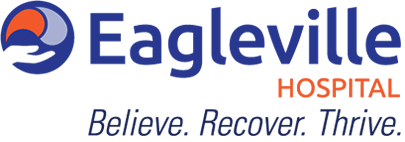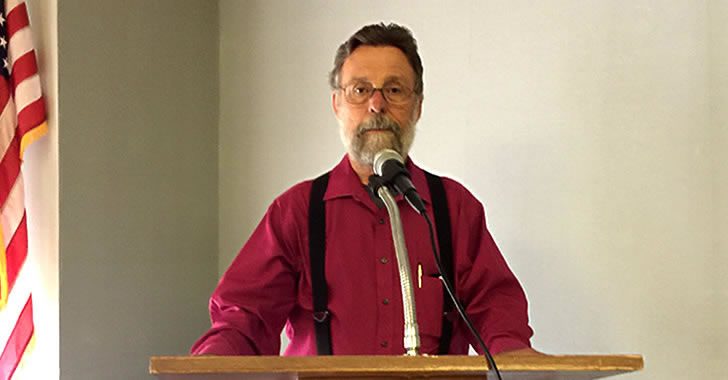HR 590 Task Force Testimony
Good Morning,
My name is William Charles Folks, I am a Licensed Clinical Social Worker. I was asked to testify today by the Rehabilitation Community Providers Association. With more than 325 members serving well over 1 million Pennsylvanians annually, Rehabilitation and Community Providers Association (RCPA) is among the largest and most diverse state health and human services trade associations in the nation. Of the 325 members RCPA represents nearly 70 are drug and alcohol treatment providers that operate approximately 170 licensed drug and alcohol facilities in every county in the commonwealth. I am a member of RCPA’s Board of Directors and co-chair of the association’s Criminal Justice Committee. My employer, Eagleville Hospital is also a member of the Drug and Alcohol Service Providers Association of Pennsylvania and the Hospital Association of Pennsylvania.
I have been employed by Eagleville Hospital since 1971. My current title is Director of Community Integration and Strategic Partnerships. Over the years I have served in Community Education, Social Work, Admissions, Clinical Coordinator, Program Director, and Director of Counseling roles. My specialties have included Criminal Justice populations and Co-Occurring Disorders. Over the years I have provided direct patient care, supervised staff, implemented programming and interacted with family members when they were facing difficulty accessing care for loved ones.
Eagleville Hospital is a private, not for profit, regional provider of inpatient behavioral health services located in Montgomery County and is accredited by the Joint Commission. The facility has approximately 300 beds. All but 18 of these beds are licensed for drug and alcohol treatment by the Department of Drug and Alcohol Programs. The hospital provides both Inpatient Hospital and Non-Hospital Residential treatment. Hospital level beds include an Acute Co-occurring Disorders Unit, Hospital Detoxification and Hospital Rehabilitation. Non-Hospital level beds include Non-Hospital Detoxification, Non-Hospital Rehabilitation, and Non-Hospital Co-Occurring Disorders. The co-occurring disorders units are also licensed by the Department of Human Services. The hospital also operates an 18 bed unit for Older Adults licensed by the Department of Human Services as a Psychiatric Unit. The hospital is licensed as a Narcotic Treatment Program utilizing Methadone and Buprenorphine in both detoxification and rehabilitation programs. Other forms of medication assisted treatment in use include Vivitrol and Naltrexone.
I am pleased to announce that the hospital will soon open a new 16 bed unit for 18 to 26 year old, transition age males. This new unit is added at the request of Montgomery County in response to Secretary Tennis’ efforts to expand treatment capacity due to the current opiate epidemic. Because of the level of need in the county, these new beds will be utilized for county residents only. Eagleville also participates in the Secretary’s efforts to improve access to care for overdose survivors through a relationship with a local hospital emergency department and diversion to treatment from county jails. For many years the hospital has participated in numerous efforts to provide diversion opportunities for individuals involved in the criminal justice system. Our greatest challenge today is having the capacity to treat the number of individuals attempting to access care.
Eagleville Hospital is the only specialty hospital of its type in Pennsylvania. The facility is nearly totally dedicated to publicly funded patients including Medicare, Medicaid, Dual Eligibles, County Funded and uninsured. Ninety six percent of our patients fall into these categories. Our intake and assessment office operates 24 hours per day, 7 days per week. Given the demand for services, our commitment to easy access to care, and the difficulty publicly funded individuals face in accessing care the hospital is operating at maximum capacity. Eagleville Hospital does not operate an emergency room, but uses its resources to keep our door open to individuals that appear without a scheduled appointment. Over the past 6 months an average of 160 individuals per month have presented requesting emergency admission for detoxification. In the month of August we reached an all-time record of 218. Given operating at maximum capacity we find that we have to turn away many individuals seeking care. People suffering from addiction generally decide to access care during a crisis. If care is not provided in a timely manner the readiness to ask for care also passes and an opportunity for change is lost. I have heard from many family members and individuals in 12 step recovery that are desperate to get someone in to treatment. It is not an easy task to explain to a mother, fearful that her child will overdose, that she may need to wait a week or longer for a bed to become available somewhere. Unfortunately these conversations have become a regular occurrence. The reported incidence of death from overdose by former patients has increased significantly in recent years.
When I first arrived at Eagleville in 1971 it was possible for a patient to stay sixty days in hospital rehabilitation followed by six months of residential treatment and possibly six months in a halfway house. These were otherwise fairly healthy individuals with few, if any, physical health or mental health complications. Lengths of stay have greatly reduced over time. Today hospital level rehabilitation is available only to individuals with significant physical health or mental health complications and rarely lasts for more than two weeks. Long term non-hospital rehabilitation is authorized only for individuals with significant levels of impairment and two to three month lengths of stay are generally the longest authorized. Consideration must be given to providing greater access to residential treatment of greater duration followed by appropriate reintegration into the community. It is also important to mention that not all insured individuals can easily access care. Young working poor purchasing insurance through the Health Exchange may have coverage for behavioral health, but deductibles and co-pays are significant and an obstacle to getting treatment. Individuals with public funding face waiting lists due to the lack of availability of beds for this population.
The potency of heroin and prescription opiates in use today is significantly higher than in the past. Detoxification protocols and lengths of stay are not sufficient for the current need. I spoke with the hospital’s Detox Medical Director about this issue. Currently tapers are based on a 5 day projected length of stay. Patients tend to leave prematurely, elect not to go on to a rehabilitation unit, or relapse quickly after detox simply because they aren’t feeling well and engage in self-medication. A more reasonable length of stay for opiate detox would be seven days and longer for benzodiazepines. Five days is not enough to get them feeling well, motivated for and connected with appropriate treatment post detox.
Having commented on limited lengths of stay I want to state that Eagleville Hospital has excellent relationships with the Health Choices companies and the counties that we serve. We believe they are doing their best to manage the resources made available to them. It is my belief that drug addiction is a communicable disease. It has an impact on much more than the afflicted individual. Children and families suffer and there is a tendency for addiction to pass through generations in families. In the case of intravenous drug users HIV infection and Hepatitis C are transmitted from one user to another. Hepatitis C is rampant in Pennsylvania and has a direct link to intravenous drug use in many communities. From a public health perspective I was taught that it is important to assess the incidence of a problem, determine the resources necessary to impact on the problem, and develop strategies to address the problem. Perhaps through stigma or misunderstanding we appear to take a different approach to this disease. We have criminalized drug use. We have attempted to incarcerate rather than treat and in spite of record levels of state and county prison populations the problem continues to grow. We determine how much money we are willing to spend on treatment rather than allocating resources based on identified need. As a result, when funding becomes depleted we ration care to meet the available dollars. This is much like giving half a dose of an antibiotic or just turning away someone with influenza. They will not get better and will infect others.
In an environment where financial resources are stagnant or shrinking it is difficult to provide high quality care. At Eagleville Hospital we provide physical health and psychiatric care on site, on a daily basis. If we do not treat the whole person treatment is not effective. Recruiting and retaining skilled physicians and psychiatrists represents a significant financial cost. As is the case with other treatment providers our physical plant is aging and in need of replacement. With a tight budget, limited rate increases and an uncertain future it is difficult to identify the financial resources to build for the future. The loss of facilities such as Eagleville and others that serve primarily the publicly funded patient would have devastating consequences for the people that we serve. I would ask that the legislature assure that treatment providers receive adequate funding to assure that high quality care is provided and that we are able to invest in the future.
Read Charlie Folks story on giving testimony | Read Charlie Folks Testimonial
Back to News/Events
